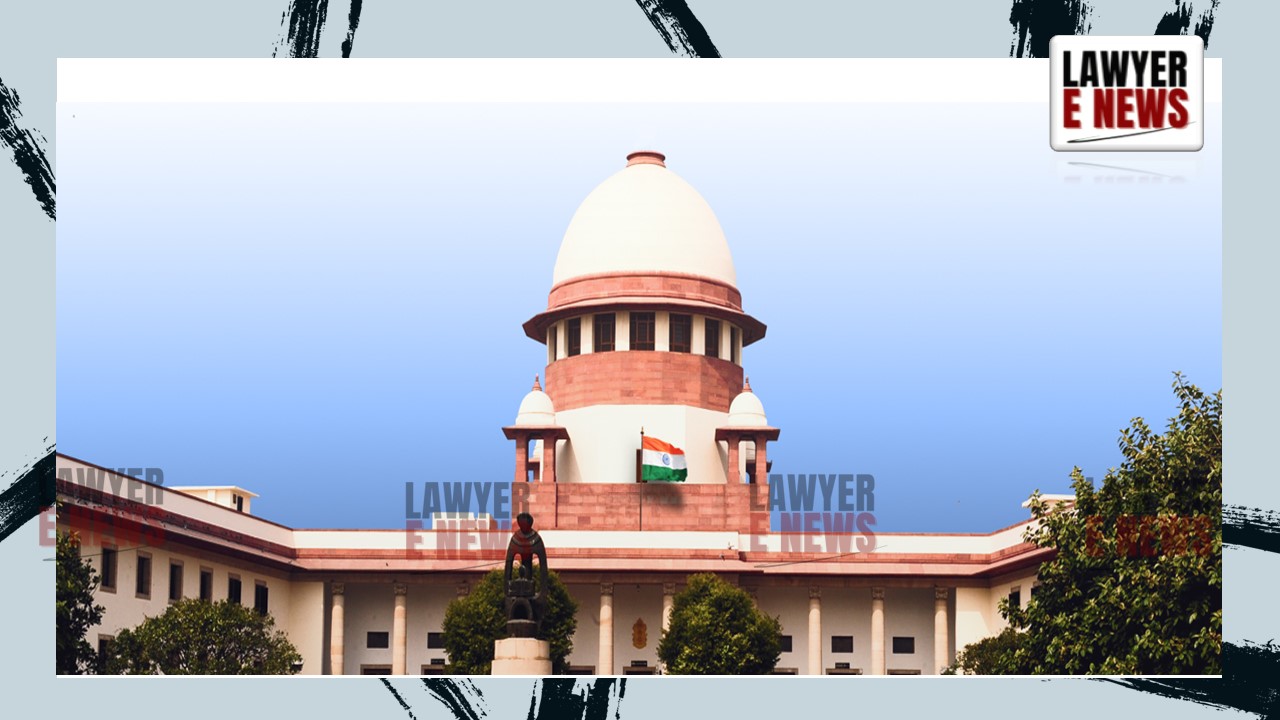-
by Admin
15 February 2026 5:01 PM



Supreme Court of India, in Jaydeepsinh Pravinsinh Chavda & Others v. State of Gujarat, ruled that allegations of harassment against a wife did not meet the legal threshold for abetment of suicide under Section 306 IPC. However, the Court upheld charges under Section 498A IPC (cruelty). A bench comprising Justice Vikram Nath and Justice Prasanna B. Varale partially allowed the appeal, emphasizing the necessity of intent and proximity in abetment charges.
"Mere Harassment Cannot Constitute Abetment Without Mens Rea and Proximity"- Supreme Court
The Court observed, "For abetment under Section 306 IPC, there must be clear mens rea and a proximate causal link between the accused's actions and the suicide. Mere harassment, in itself, does not constitute abetment unless accompanied by a deliberate intent to provoke or incite the act of suicide."
The case stemmed from an FIR lodged by the father of a deceased woman, alleging that her husband (Appellant No. 1) and in-laws (Appellants Nos. 2 and 3) subjected her to mental and physical harassment, ultimately leading to her suicide. The allegations included selling her streedhan (gold ornaments) and torturing her when she demanded its return. The suicide occurred 12 years after the marriage.
The appellants' discharge applications under Section 227 of the Code of Criminal Procedure, 1973, were dismissed by the Sessions Court and the Gujarat High Court. Both courts held that prima facie evidence existed to frame charges under Sections 306 and 498A IPC. The appellants approached the Supreme Court, challenging these decisions.
The Supreme Court examined whether the allegations justified framing charges under:
Section 498A IPC (cruelty)
Section 306 IPC (abetment of suicide)
Supreme Court Analysis
Section 498A IPC (Cruelty)
The Court upheld the charges under Section 498A IPC, holding that the evidence presented a strong prima facie case:
Witness statements corroborated allegations of physical and mental harassment, including the sale of the deceased’s ornaments and torture when she demanded their return.
Specific incidents cited in the FIR and corroborated during the investigation were sufficient to justify trial under Section 498A IPC.
The Court rejected the argument that the absence of complaints during 12 years of marriage negated allegations of cruelty, observing that harassment can remain unreported but still be actionable if substantiated later.
The Court concluded that the alleged actions fell within the ambit of cruelty as defined under Section 498A IPC, particularly acts causing mental and physical distress to the deceased.
The Court discharged the appellants from the charge of abetment of suicide, emphasizing the following:
Absence of Mens Rea: There was no evidence suggesting the appellants intended to incite or provoke the deceased to commit suicide.
Lack of Proximity: The alleged harassment occurred almost a year before the suicide, breaking the causal chain required to sustain charges under Section 306 IPC.
No Direct Instigation: Mere allegations of harassment do not constitute abetment unless coupled with direct or compelling acts inciting the victim to commit suicide.
The Court observed: "Harassment alone, without clear evidence of intent or a direct link to the act of suicide, does not satisfy the legal standard for abetment under Section 306 IPC."
The Court cited precedents, including S.S. Chheena v. Vijay Kumar Mahajan (2010) and Ramesh Kumar v. State of Chhattisgarh (2001), to underscore that a conviction for abetment requires clear evidence of instigation or intentional conduct pushing the victim to suicide.
The evidence supported a prima facie case of cruelty under Section 498A IPC, warranting trial.
The allegations lacked the proximity and intent necessary to sustain charges under Section 306 IPC.
The absence of specific acts directly linked to the suicide led to the appellants’ discharge under Section 306 IPC.
The Supreme Court partly allowed the appeal. While the appellants were discharged from charges under Section 306 IPC, the charges under Section 498A IPC were upheld. The trial under Section 498A IPC will proceed. The Court reiterated that each case of alleged abetment must be assessed on its facts, focusing on intent and the nexus between alleged conduct and the act of suicide.
Date of Decision: December 10, 2024
